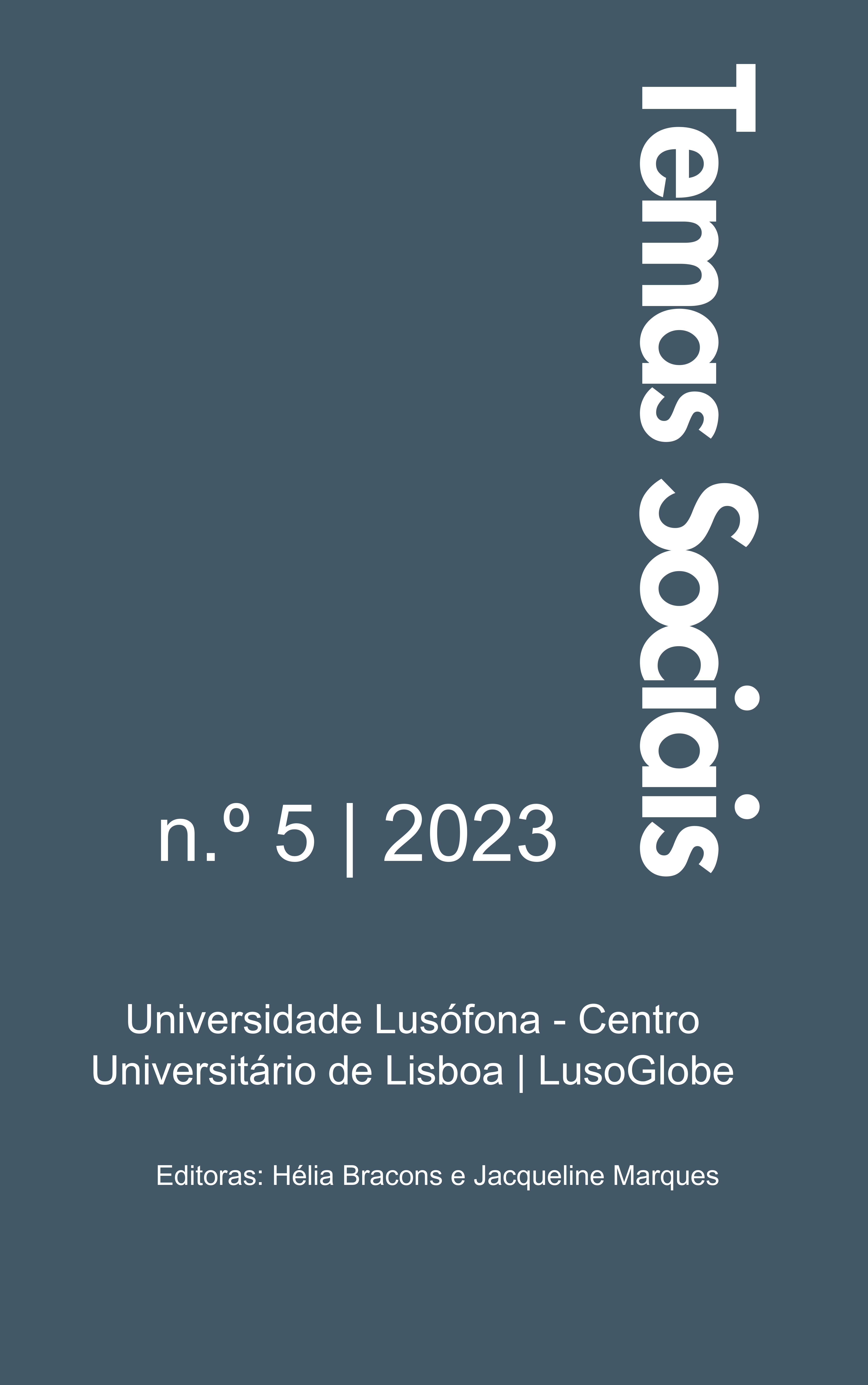Serviço Social e Comportamentos Aditivos e Dependências. O papel das Políticas de Intervenção Social
https://doi.org/10.53809/TS_ISS_2023_n.5_115-127
Resumo
Os comportamentos aditivos e dependências são uma questão complexa que requer esforços multidisciplinares para uma intervenção concertada quer do ponto de vista da ação profissional, quer do ponto de vista político. O investimento político revê-se, em Portugal, na criação e implementação de respostas articuladas entre saúde e ação social, através do Serviço de Intervenção nos Comportamentos Aditivos e Dependências.
Com base na revisão crítica da literatura, é delineada a política portuguesa no âmbito dos comportamentos e dependências e a intervenção social realizada neste contexto. Na intervenção social, os/as assistentes sociais desempenham um papel importante na prevenção, tratamento, reinserção social e redução de riscos e minimização de danos.
É sublinhado o papel do/a assistente social nos diferentes eixos de intervenção, enfatizando os modelos sistémicos e ecológicos. Na construção do corpo teórico que se pretende para o Serviço Social é fundamental um investimento na investigação que, desta forma, contribua para uma intervenção teórico-prática robusta e especializada.
Downloads
Política de Acesso Aberto
A Revista Temas Sociais é uma revista de acesso aberto, que disponibiliza os seus conteúdos de forma livre, gratuita e imediata, com o objetivo de promover a circulação do conhecimento científico e o intercâmbio académico a nível nacional e internacional.
Ao submeterem os seus trabalhos, os/as autores/as autorizam a publicação, difusão e comunicação pública dos mesmos no âmbito da revista, mantendo a responsabilidade integral pelo conteúdo dos manuscritos apresentados.
Direitos de Autor
Os/as autores/as mantêm os direitos de autor sobre os seus trabalhos, concedendo à Revista Temas Sociais o direito de publicar, reproduzir, divulgar e arquivar os conteúdos, em formato digital, no âmbito da sua política editorial e de acesso aberto.
A reutilização dos conteúdos publicados deve respeitar as condições estabelecidas pela revista e a legislação em vigor em matéria de direitos de autor.
Código Ético e Boas Práticas
A Revista Temas Sociais assume um compromisso com os princípios éticos da investigação e da publicação científica, promovendo a integridade académica, a transparência editorial e a igualdade de oportunidades no acesso ao conhecimento. Para esse efeito, adota o seguinte Código Ético e de Boas Práticas:
-
Os textos submetidos devem ser originais, inéditos e de exclusiva autoria do(s)/da(s) autor(es)/as, não podendo ter sido previamente publicados, difundidos ou submetidos a outra revista.
-
Os/as autores/as são responsáveis por obter todas as autorizações necessárias à publicação dos seus trabalhos, devendo indicar corretamente as fontes e referências utilizadas.
-
Os trabalhos resultantes de investigação financiada por entidades externas devem assegurar, quando aplicável, a autorização para a divulgação dos respetivos resultados.
-
Todos os manuscritos submetidos são sujeitos a verificação de plágio, através da ferramenta de deteção em vigor na Universidade Lusófona – Centro Universitário de Lisboa.
-
Os artigos recebidos são avaliados por revisores/as especialistas na área temática, em regime de avaliação por pares com dupla anonimização (double-blind peer review), garantindo-se o anonimato do(s)/da(s) autor(es)/as e dos/as avaliadores/as ao longo de todo o processo.
-
Os trabalhos que envolvam participantes humanos devem assegurar o consentimento informado, o respeito pela confidencialidade dos dados pessoais e, quando aplicável, a obtenção de parecer favorável de uma Comissão de Ética.
-
A autoria dos trabalhos deve refletir exclusivamente as pessoas que contribuíram de forma intelectual significativa para a conceção e execução da investigação, análise dos resultados, redação do texto e aprovação da versão final do manuscrito.



